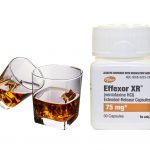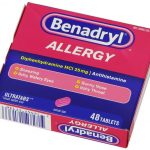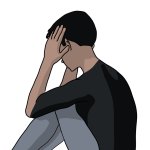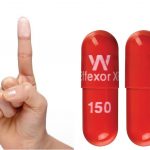Venlafaxine (Effexor): Uses, How it works, Side Effects, Withdrawal

What Is Venlafaxine (Effexor) And What Does It Treat?
Venlafaxine more commonly known by the brand name Effexor is a medication used to treat depression. Venlafaxine extended-release (long-acting) capsules are also used to treat generalized anxiety disorder (GAD; excessive worrying that is difficult to control), social anxiety disorder (extreme fear of interacting with others or performing in front of others that interferes with normal life), and panic disorder (sudden, unexpected attacks of extreme fear and worry about these attacks).
Venlafaxine (Effexor) may also be helpful when prescribed “off-label” for attention-deficit/hyperactivity disorder (ADHD) in adults and children/adolescents, diabetic neuropathy, migraine prevention, hot flashes, obsessive-compulsive disorder (OCD), posttraumatic stress disorder (PTSD), and premenstrual dysphoric disorder (PMDD). “Off-label” means that it hasn’t been approved by the Food and Drug Administration for this condition. Your mental health provider should justify his or her thinking in recommending any “off-label” treatment. They should be clear about the limits of the research around that medication and if there are any other options.
How does Venlafaxine (Effexor) work?
Venlafaxine is in a class of medications called selective serotonin and norepinephrine reuptake inhibitors (SNRIs). It works by increasing the amounts of serotonin and norepinephrine, natural substances in the brain that help maintain mental balance.
What Is The Most Important Information I Should Know About Venlafaxine (Effexor)?
Do not stop taking venlafaxine, even when you feel better. With input from you, your health care provider will assess how long you will need to take the medicine.
Missing doses of venlafaxine may increase your risk for relapse in your symptoms.
Stopping venlafaxine abruptly may result in one or more of the following withdrawal symptoms: irritability, nausea, feeling dizzy, vomiting, nightmares, headache, and/or paresthesias (prickling, tingling sensation on the skin).
Depression is also a part of bipolar illness. People with bipolar disorder who take antidepressants may be at risk for “switching” from depression into mania. Symptoms of mania include “high” or irritable mood, very high self-esteem, decreased need for sleep, pressure to keep talking, racing thoughts, being easily distracted, frequently involved in activities with a large risk for bad consequences (for example, excessive buying sprees).
Medical attention should be sought if serotonin syndrome is suspected. Please refer to serious side effects for signs/symptoms.
What Should I Discuss With My Health Care Provider Before Taking Venlafaxine (Effexor)?
• Symptoms of your condition that bother you the most
• If you have thoughts of suicide or harming yourself
• Medications you have taken in the past for your condition, whether they were effective or caused any adverse effects
• If you experience side effects from your medications, discuss them with your provider. Some side effects may pass with time, but others may require changes in the medication.
• Any other psychiatric or medical problems you have, including a history of bipolar disorder
• All other medications you are currently taking (including over the counter products, herbal and nutritional supplements) and any medication allergies you have
• Other non-medication treatments you are receiving, such as talk therapy or substance abuse treatment. Your provider can explain how these different treatments work with the medication.
• If you are pregnant, plan to become pregnant, or are breastfeeding
• If you drink alcohol or use drugs
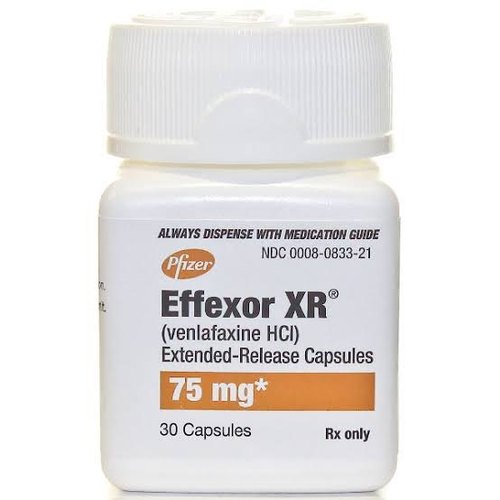
How Should I Take Venlafaxine (Effexor)?
Venlafaxine (Effexor) immediate-release tablets are usually taken two or three times per day with or without food. The extended-release tablets and capsules are taken one time per day with or without food.
Typically, patients begin at a low dose of medicine and the dose is increased slowly over several weeks.
The dose usually ranges from 37.5 mg to 300 mg. Only your health care provider can determine the correct dose for you.
Extended-release tablets: Swallow whole; do not chew, crush, or break
Extended-release capsules: Swallow whole or sprinkle onto food, such as applesauce or pudding and eat immediately.
Consider using a calendar, pillbox, alarm clock, or cell phone alert to help you remember to take your medication. You may also ask a family member or friend to remind you or check in with you to be sure you are taking your medication.
What Happens If I Miss A Dose Of Venlafaxine (Effexor)?
If you miss a dose of venlafaxine, take it as soon as you remember, unless it is closer to the time of your next dose. Discuss this with your health care provider. Do not double your next dose or take more than what is prescribed.
What Should I Avoid While Taking Venlafaxine (Effexor)?
Avoid drinking alcohol or using illegal drugs while you are taking antidepressant medications. They may decrease the benefits (e.g., worsen your condition) and increase adverse effects (e.g., sedation) of the medication.
What Happens If I Overdose With Venlafaxine (Effexor)?
If an overdose occurs, call your doctor or 911. You may need urgent medical care. You may also contact the poison control center at 1-800-222-1222.
A specific treatment to reverse the effects of venlafaxine does not exist.
Can a pregnant woman take Venlafaxine (Effexor)?
If you are planning on becoming pregnant, notify your health care provider to best manage your medications. People living with MDD who wish to become pregnant face important decisions. Untreated MDD has risks to the fetus, as well as the mother. It is important to discuss the risks and benefits of treatment with your doctor and caregivers. For women who take antidepressant medications during weeks 13 through the end of their pregnancy (second and third trimesters), there is a risk that the baby can be born before it is fully developed (before 37 weeks).
Can a breastfeeding woman take Venlafaxine (Effexor)?
Caution is advised with breastfeeding but if your doctor or health visitor says your baby is healthy, venlafaxine can be used during breastfeeding. It has been used in breastfeeding mothers usually without any problems. Venlafaxine (Effexor) passes into breast milk in small amounts. It has been linked with side effects in very few breastfed babies.
What Are The Possible Side Effects Of Venlafaxine (Effexor)?
Is Venlafaxine (Effexor) a safe medication?
This medication is safe to use when taken as prescribed. However, Venlafaxine (Effexor) can cause increased heart rate, low blood pressure, increased salivation, irregular menstrual cycle, increased frequency of urination, changes in taste, low sodium (symptoms of low sodium levels may include headache, weakness, difficulty concentrating, and remembering), teeth grinding, difficulty urinating, angle-closure glaucoma (symptoms of angle-closure glaucoma may include eye pain, changes in vision, swelling or redness in or around the eye).
Serotonin syndrome (symptoms may include shivering, diarrhea, confusion, severe muscle tightness, fever, seizures, and death)
SNRI antidepressants including venlafaxine may increase the risk of bleeding events. Combined use of aspirin, nonsteroidal anti-inflammatory drugs (e.g., ibuprofen, naproxen), warfarin, and other anti-coagulants may increase this risk. This may include gums that bleed more easily, nose bleed, or gastrointestinal bleeding. Some cases have been life-threatening.
Are There Any Risks For Taking Venlafaxine (Effexor) For Long Periods Of Time?
To date, there are no known problems associated with the long-term use of venlafaxine. It is a safe and effective medication when used as directed.
What Other Medications May Interact With Venlafaxine (Effexor)?
Venlafaxine (Effexor) should not be taken with or within 2 weeks of taking monoamine oxidase inhibitors (MAOIs). These include phenelzine (Nardil®), tranylcypromine (Parnate®), isocarboxazid (Marplan®), rasagiline (Azilect®), and selegiline (Emsam®).
Although rare, there is an increased risk of serotonin syndrome when venlafaxine is used with other medications that increase serotonin, such as other antidepressants, migraine medications called “triptans” (e.g., Imitrex®), some pain medications (e.g., tramadol (Ultram®), and the antibiotic linezolid (Zyvox®).
Venlafaxine (Effexor) may increase the effects of other medications that can cause bleeding (e.g., ibuprofen (Advil®, Motrin®), warfarin (Coumadin®), and aspirin).
How do I discontinue treatment with Venlafaxine (Effexor)?
Do not stop Venlafaxine (Effexor) without first talking to your healthcare provider. When people suddenly stop using or quickly lower their daily dose of Venlafaxine (Effexor), serious and uncomfortable withdrawal symptoms may occur and in some patients, these symptoms can be severe and last for a long time.
If you and your doctor have made the decision to discontinue treatment, gradually reducing the dose is recommended rather than abruptly stopping your medication. To successfully taper you off treatment with Venlafaxine (Effexor) and avoid discontinuation symptoms, your physician should slowly decrease your daily dose and carefully monitor you for symptoms.

